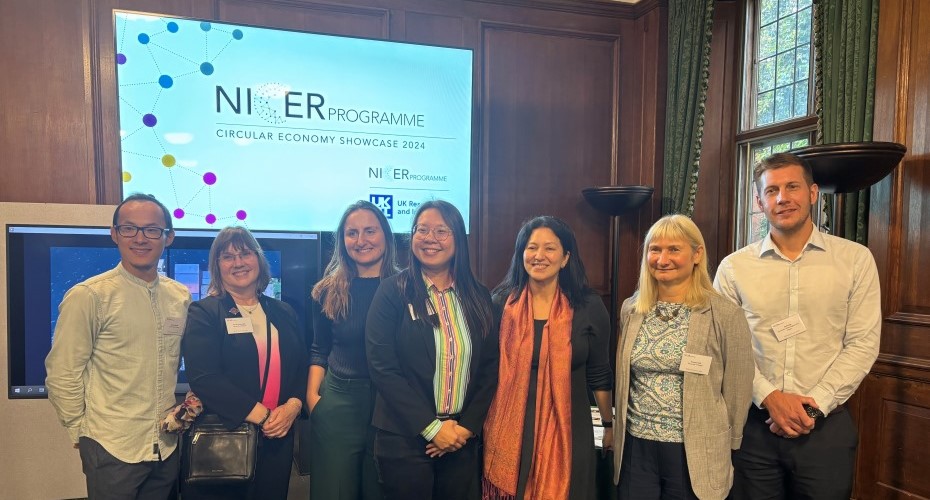Exeter's circular economy experts hailed the National Interdisciplinary Circular Economy Research (NICER) programme as the 'start of a journey' at a spectacular showcase event in London last week to mark the end of the programme.
Around 250 delegates from business, academic and policy settings gathered at Church House in Westminster for the event, which featured keynotes from two UN officials who praised the programme for putting the UK at the vanguard of countries looking to make a circular economy a reality.
"We want to continue building on the achievements and innovations of the NICER programme, because the UK is one of the most advanced countries in discussing how to embed circular economy principles within your own economy, actually basing a real economy on circular principles," said Dario Liguti, Director of Sustainable Energy at the United Nations Economic Commission for Europe (UNECE) in his keynote address, a remark that looks towards the new UN-backed International Centre of Excellence on Sustainable Resource Management in the Circular Economy.

The event was the culmination of the four-year NICER programme, funded through a £30 million investment from Defra and UKRI, and saw a series of panel events and talks celebrating the programme's achievements, which include the development of new circular business models and products, a greater influence over policy and consumer behaviour, and collaboration and understanding between stakeholders.
Gideon Henderson, Chief Scientific Officer at Defra, was instrumental in setting up the programme and made an appearance via video link in which he praised how the programme had managed to get government, academia and industry to work together more closely.
The University of Exeter has played a key role in the NICER programme through the Circular Economy Centre for Technology Metals (Met4Tech) - one of the five UKRI National Interdisciplinary Circular Economy Research Centres - led by Exeter's Professor Frances Wall, and through the coordinating CE-Hub, led by Co-Directors Professor Peter Hopkinson and Professor Fiona Charnley from the University of Exeter Business School, who also compered the event.
Professor Hopkinson said: "To make the circular economy work we need to show evidence of proof of value to business, policy and wider society.
"The NICER programme has provided many examples of innovations and activities to demonstrate this proof of value, but there is much work still to be done to scale up the circular economy."






